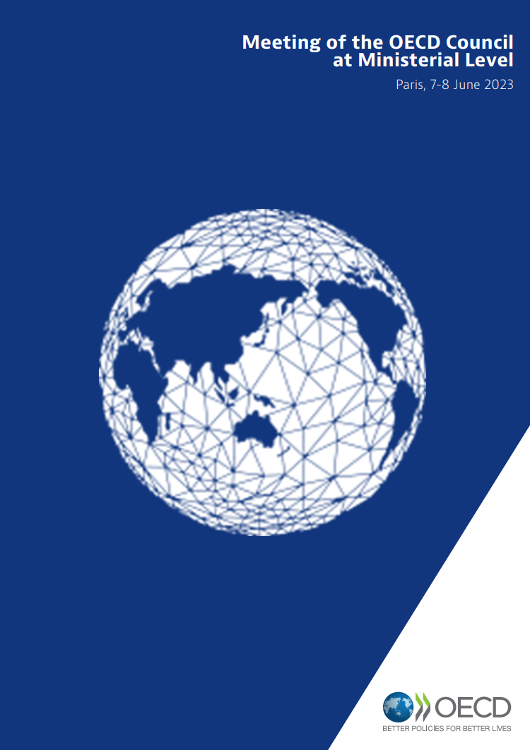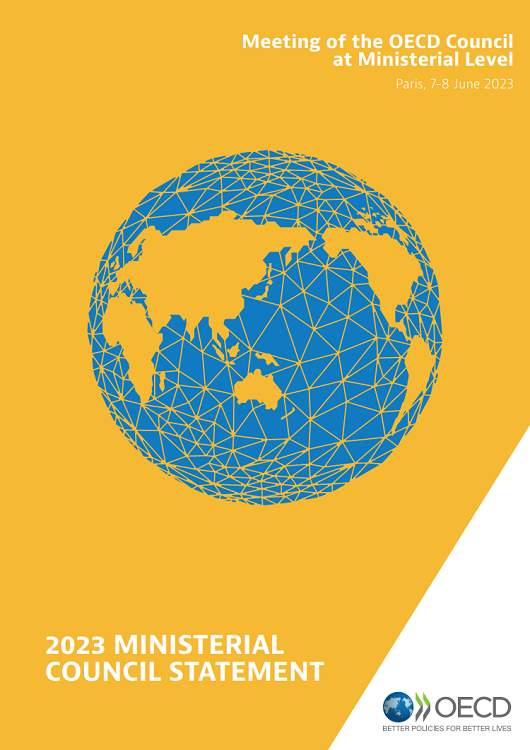Remarks by Mathias Cormann,
Secretary-General, OECD
Tallinn, Estonia, 6-7 September 2021
Dear Executive Vice President, Excellencies, Colleagues,
It is my pleasure to join you today at the Tallinn Digital Summit to talk about the important topic of Trusted Connectivity.
All around the world, countries continue to face serious challenges related to the COVID-19 pandemic.
Economic growth has picked up this year, helped by strong policy support, the ongoing deployment of effective vaccines, the gradual resumption of many economic activities, particularly in service sectors as restrictions have eased and indeed the digital transformation of our economies.
However, the pace of the recovery remains uneven and the outlook uncertain with virus remains the biggest risk.
As we seek to optimise the strength and the quality of the recovery, Trusted Connectivity will be increasingly important.
The digital transformation was well underway before COVID-19 hit us, but the pandemic has further significantly accelerated it all around the world.
That digital transformation brings many obvious benefits and opportunities, but it also comes with new, evolving challenges, risks and disruptions.
As policy makers we need to ensure we maximise the benefits while better managing some of those associated challenges, risks and disruptions.
These include ensuring appropriate and equitable access to the necessary digital infrastructure, to investing in the necessary skills development, planning for the future of work, effectively addressing competition issues, cyber security, privacy, data flow with trust and tax policy implications as well as setting values based standards for example on the use of artificial intelligence, to name just a few.
To achieve trusted connectivity we need to ensure it is genuinely human centric and that everyone has the best possible opportunity to participate and benefit from the digital transformation of our economies – and can be and feel safe in the digital world.
We need to invest in the necessary digital economy infrastructure and ensure appropriately universal access.
We need to invest in the upskilling and reskilling required to ensure that workers can continue to find work and benefit from technology-driven structural changes and are not left behind.
And we need to better manage the serious competition, cyber security, privacy, data flow and tax issues connected to the digital transformation of our globalised economy.
To address all these issues effectively requires a renewed commitment to our shared democratic values, as well as the close collaboration between private and public sectors, to continue to develop and refine a framework where the technical, legal and political environment inspires public confidence in infrastructure and technology.
Let me highlight three ways in which we can contribute to Trusted Connectivity by focusing our attention on infrastructure investment and governance.
Firstly, infrastructure investment must be made in a way that maximises the opportunities of digitalisation and minimises its risks.
The OECD has recently adopted a revised Recommendation on Broadband Connectivity recognising the importance of broadband infrastructure, in particular, to all essential economic and social activities.
This Recommendation provides a clear roadmap for policy makers and regulatory authorities within and outside of the OECD to ensure we extend high-quality connectivity to everyone.
Large connectivity gaps remain across the World, in particular for high-quality connectivity.
In the OECD, fibre is far from being evenly distributed across countries: while some countries have now a penetration of over 80% of fixed broadband connections, other countries, even within the OECD remain closer to 0%.
The digital security of networks and infrastructures is also essential to ensure that critical activities – from energy, to health, to finance, to transport – can withstand malfunctions or malicious intervention.
Here, standards like the OECD Recommendation on the Digital Security of Critical Activities, as well as the OECD’s Global Forum on Digital Security for Prosperity, bring countries together to share and implement best practices and ensure Trusted Connectivity for all.
Secondly, ensuring quality infrastructure investment.
We must ensure that infrastructure investment supports sustainable, resilient and inclusive economic growth.
Worldwide, many still lack access to basic infrastructure such as clean energy and water, healthcare services or communication infrastructure.
Meeting present and future infrastructure investment needs cannot be done through public resources alone: bridging the investment gap will also require investment from the private sector.
Now more than ever, we need effective global co-operation and innovative approaches to ensure we align infrastructure investment needs with sustainable outcomes.
This includes making infrastructure governance a priority.
Poor infrastructure governance leads to higher economic and social costs, cost overruns and delays, inadequate services, health and environmental damage and finally, negative effects on long term sustainability and resilience.
Such inefficiencies reduce the legitimacy of infrastructure projects amongst stakeholders, negatively affecting trust and shared ownership of infrastructure investment and delivery.
Last but not least, translating standards into action, through initiatives such as the Blue Dot Network.
Many private investors are looking for well-run infrastructure projects that are green and sustainable. But we currently lack standard ways to inform markets of the quality of infrastructure projects.
This is where international initiatives such as the Blue Dot Network have a fundamental role to play.
The Blue Dot Network was initiated by the United States, Australia and Japan in an effort to support and attract investment into quality infrastructure through the establishment of a voluntary, private-sector-focused and government-supported certification scheme for infrastructure projects.
The Network translates the G20 Quality Infrastructure Investment Principles and other leading standards into action, with a project-level framework that will create a level playing field for high quality infrastructure.
This certification will provide a globally recognised symbol of market-driven, transparent and sustainable infrastructure projects that will support the flow of financing into sectors and regions where it is most needed.
Such a trusted certification regime could also increase private sector participation in infrastructure projects and improve appetite to invest in low- and middle-income countries, while strengthening transparency.
At the request of the founding members of the Blue Dot Network, the OECD has been engaged to coordinate technical support.
One of our first actions was to develop the Executive Consultation Group, which now hosts over 160 global leaders and experts from the private sector, civil society and academia to support the effort to operationalise the global certification framework.
I would strongly encourage business and civil society leaders here today to engage with this Group.
Colleagues,
These instruments, alongside initiatives such as Trusted Connectivity and the Build Back Better World, provide a comprehensive toolkit that countries can use to implement quality infrastructure, while strengthening trust and transparency.
Our shared commitment to quality infrastructure investment and governance will not only help bridge the global infrastructure gap, but reinforce our commitment to human rights, the rule of law, and market-based economic principles, thus demonstrating that good governance and well-functioning democracies deliver better outcomes for our citizens.
Count on the OECD to support your efforts in building a global level playing field and in strengthening the rules-based international order as the best way to maximise sustainable growth, prosperity, trust and general well-being for all.
Thank you.

